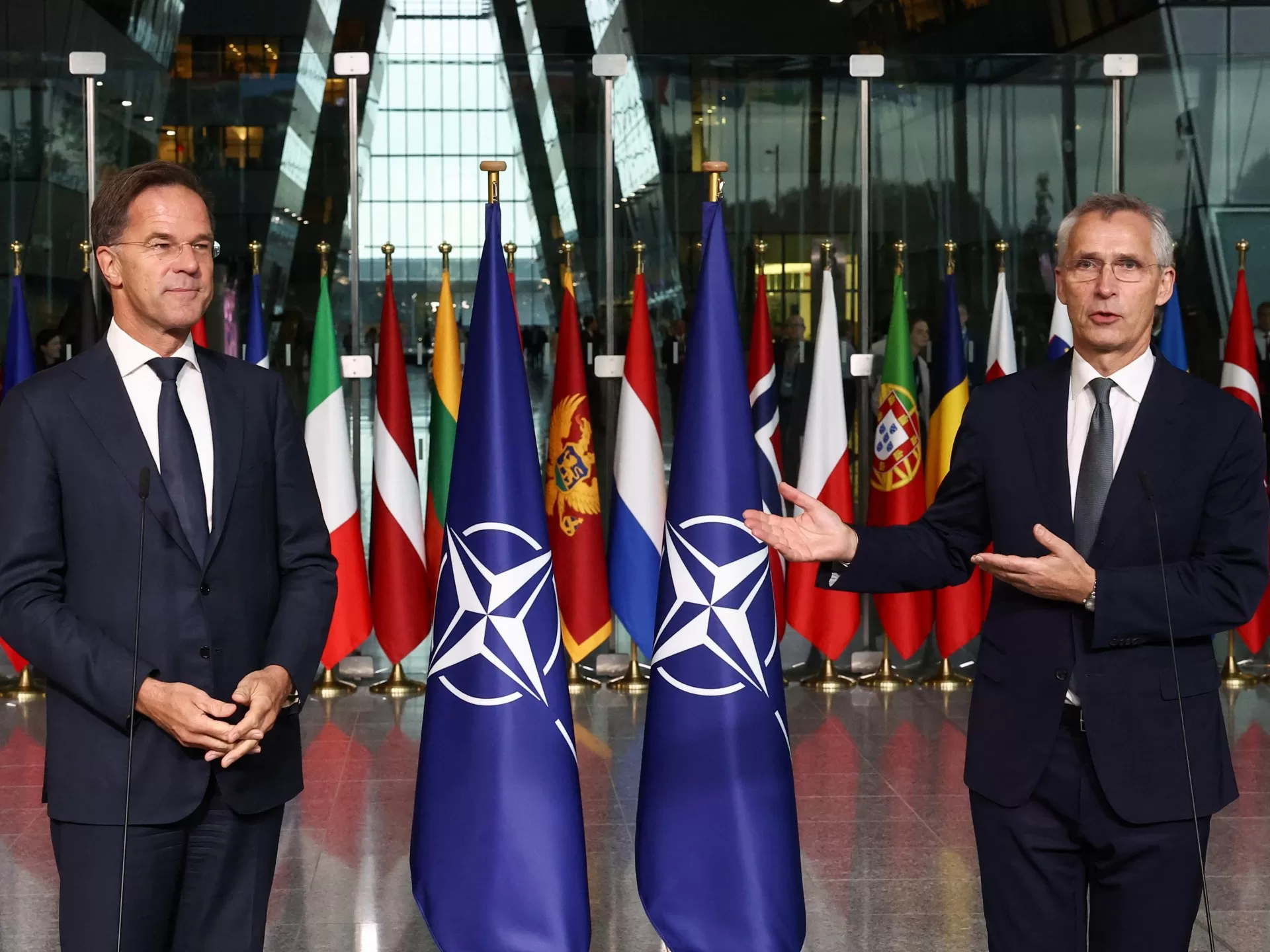NATO must ensure that Ukraine prevails in its war against Russia, the new head of the transatlantic military alliance said after he took charge.
Mark Rutte branded Ukraine his “top priority” as he formally became NATO secretary-general at a ceremony in Brussels on Tuesday. The former Dutch prime minister took over the job from Jens Stoltenberg more than three months after the alliance’s 32 members appointed him.
Stating that he “cannot wait to get to work”, Rutte told journalists: “We have to make sure that Ukraine prevails as a sovereign, independent, democratic nation.”
He also noted that, amid the growing war between Israel and Hezbollah, monitoring the situation in Lebanon is also at the top of his list.
The new NATO chief also asserted that he is not worried about the upcoming presidential election in the United States as he could work with either candidate.
It has been suggested that the Republican candidate, former US President Donald Trump, could cut support to Ukraine or weaken security guarantees for some NATO members should he return to the White House after the November elections.
Rutte noted Trump’s continued push for NATO allies to spend more on defence, but said he was not worried as he had worked with the US presidential hopeful before.
“He was also pushing us on China, and I think he was right there,” he added.
The NATO chief also noted that ramping up Western defence industry production and deepening ties with partners in the Asia Pacific as important tasks.
“Mark has the perfect background to become a great secretary-general,” a visibly emotional Stoltenberg said as he ended a decade in office.
“He has served as prime minister for 14 years and led four different coalition governments … therefore he knows how to make compromises, create consensus, and these are skills which are very much valued here at NATO,” he said.
Rutte will likely need to call on such skills to navigate uncertainty over future Western support for Ukraine. Aside from the ambiguity around future US support, the European Union’s policies have been weighted down by opposition from the likes of Hungary.
No change
Meanwhile, Russian forces have been advancing on the battlefield more than two-and-a-half years after the Kremlin’s all-out invasion.
On Tuesday morning, seven people, including three women, were killed when Russian troops shelled the southern city of Kherson, according to Ukraine’s General Prosecutor’s Office.
The attack came in an area near a central bus stop and a central market at about 9am (06:00 GMT), the office said in a statement.
Governor Oleksandr Prokudin published a video showing the blurred corpses in civilian clothes lying near a market stall with tomatoes and other vegetables.
Russia has denied targeting civilians but has regularly struck towns and cities behind the front line.
Kyiv has urged its allies to raise military aid to help it repel such attacks.
NATO, whose members have supplied 99 percent of all foreign weaponry to Ukraine, agreed at a summit in July to play a bigger role in delivering arms to Kyiv and Rutte would be key in stewarding that support.
Ukraine’s President Volodymyr Zelenskyy said on social media he wants to work “productively” with Rutte towards bringing his country into the military alliance – an idea that Russia has declared a red line.
I congratulate Mark Rutte on taking up his duties as NATO Secretary General.
I wish him every success in this new role and look forward to working productively together to strengthen Euro-Atlantic security and our partnership with the Alliance, as Ukraine continues on its path…
— Volodymyr Zelenskyy / Володимир Зеленський (@ZelenskyyUa) October 1, 2024
“I wish him every success in this new role and look forward to working productively together to strengthen Euro-Atlantic security and our partnership with the alliance, as Ukraine continues on its path towards full-fledged NATO membership,” Zelenskyy wrote on X.
A spokesman for the Kremlin said Russia expects no change of policy from the new NATO chief.
